- Home
- Daphne Du Maurier
The Apple Tree: a short novel & several long stories Page 25
The Apple Tree: a short novel & several long stories Read online
Page 25
"If you're going to be late," he said, "we'd best take the key for you."
Then he went on reading his paper. You could tell they were proper hurt that I didn't tell them anything, or say where I was going.
I went off to work, and we were busy at the garage that day, one job after the other came along, and any other time I wouldn't have minded. I liked a full day and often worked overtime, but today I wanted to get away before the shops closed; I hadn't thought about anything else since the idea came into my head.
It was getting on for half-past four, and the boss came to me and said, "I promised the doctor he'd have his Austin this evening, I said you'd be through with it by seven-thirty. That's O.K., isn't it?"
My heart sank. I'd counted on getting off early, because of what I wanted to do. Then I thought quickly that if the boss let me off now, and I went out to the shop before it closed, and came back again to do the job on the Austin, it would be all right, so I said, "I don't mind working a bit of overtime, but I'd like to slip out now, for half-an-hour, if you're going to be here. There's something I want to buy before the shops shut."
He told me that suited him, so I took off my overalls and washed and got my coat and I went off to the line of shops down at the bottom of Haverstock Hill. I knew the one I wanted. It was a jewellers, where Mr. Thompson used to take his clock to be repaired, and it wasn't a place where they sold trash at all, but good stuff, solid silver frames and that, and cutlery.
There were rings, of course, and a few fancy bangles, but I didn't like the look of them. All the girls in the N.A.A.F.I. used to wear bangles with charms on them, quite common it was, and I went on staring in at the window and then I spotted it, right at the back.
It was a brooch. Quite small, not much bigger than your thumbnail, but with a nice blue stone on it and a pin at the back, and it was shaped like a heart. That was what got me, the shape. I stared at it a bit, and there wasn't a ticket to it, which meant it would cost a bit, but I went in and asked to have a look at it. The jeweller got it out of the window for me, and he gave it a bit of a polish and turned it this way and that, and I saw it pinned on my girl, showing up nice on her frock or her jumper, and I knew this was it.
"I'll take it," I said, and then asked him the price.
I swallowed a bit when he told me, but I took out my wallet and counted the notes, and he put the heart in a box wrapped up careful with cotton wool, and made a neat package of it, tied with fancy string. I knew I'd have to get an advance from the boss before I went off work that evening, but he was a good chap and I was certain he'd give it to me.
I stood outside the jewellers, with the packet for my girl safe in my breast pocket, and I heard the church clock strike a quarter to live. There was time to slip down to the cinema and make sure she understood about the date for the evening, and then I'd beat it fast up the road and get back to the garage, and I'd have the Austin done by the time the doctor wanted it.
When I got to the cinema my heart was beating like a sledge-hammer and I could hardly swallow. I kept picturing to myself how she'd look, standing there by the curtains going in, with that velvet jacket and the cap on the back of her head.
There was a bit of a queue outside, and I saw they'd changed the programme. The poster of the western had gone, with the cowboy throwing a knife in the Indian's guts, and they had instead a lot of girls dancing, and some chap prancing in front of them with a walking-stick. It was a musical.
I went in, and didn't go near the box office but looked straight to the curtains, where she'd be. There was an usherette there all right, but it wasn't her. This was a great tall girl, who looked silly in the clothes, and she was trying to do two things at once — tear off the slips of tickets as the people went past, and hang on to her torch at the same time.
I waited a moment. Perhaps they'd switched over positions and my girl had gone up to the circle. When the last lot had got in through the curtains and there was a pause and she was free, I went up to her and I said, "Excuse me, do you know where I could have a word with the other young lady?"
She looked at me. "What other young lady?"
"The one who was here last night, with copper hair," I said.
She looked at me closer then, suspicious-like.
"She hasn't shown up today," she said. "I'm taking her place."
"Not shown up?"
"No. And it's funny you should ask. You're not the only one. The police was here not long ago. They had a word with the manager, and the commissionaire too, and no one's said anything to me yet, but I think there's been trouble."
My heart beat different then. Not excited, bad. Like when someone's ill, took to hospital, sudden.
"The police?" I said. "What were they here for?"
"I told you, I don't know," she answered, "but it was something to do with her, and the manager went with them to the police station, and he hasn't come back yet. This way, please, circle on the left, stalls to the right."
I just stood there, not knowing what to do. It was like as if the floor had been knocked away from under me.
The tall girl tore another slip off a ticket and then she said to me, over her shoulder, "Was she a friend of yours?"
"Sort of," I said. I didn't know what to say.
"Well, if you ask me, she was queer in the head, and it wouldn't surprise me if she'd done away with herself and they'd found her dead. No, ice-creams served in the interval, after the news reel."
I went out and stood in the street. The queue was growing for the cheaper seats, and there were children too, talking, excited. I brushed past them and started walking up the street, and I felt sick inside, queer. Something had happened to my girl. I knew it now. That was why she had wanted to get rid of me last night, and for me not to see her home. She was going to do herself in, there in the cemetery. That's why she talked funny and looked so white, and now they'd found her, lying there on the gravestone by the railings.
If I hadn't gone away and left her she'd have been all right. If I'd stayed with her just five minutes longer, coaxing her, I'd have got her round to my way of thinking and seen her home, standing no nonsense, and she'd be at the picture palace now, showing the people to their seats.
It might be it wasn't as bad as what I feared. It might be she was found wandering, lost her memory and got picked up by the police and taken off, and then they found out where she worked and that, and now the police wanted to check up with the manager at the cinema to see if it was so. If I went down to the police station and asked them there, maybe they'd tell me what had happened, and I could say she was my girl, we were walking out, and it wouldn't matter if she didn't recognise me even, I'd stick to the story. I couldn't let down my boss, I had to get that job done on the Austin, but afterwards, when I'd finished, I could go down to the police station.
All the heart had gone out of me, and I went back to the garage hardly knowing what I was doing, and for the first time ever the smell of the place turned my stomach, the oil and the grease, and there was a chap roaring up his engine, before backing out his car, and a great cloud of smoke coming from his exhaust, filling the workshop with stink. I went and got my overalls, and put them on, and fetched the tools, and started on the Austin, and all the time I was wondering what it was that had happened to my girl, if she was down at the police station, lost and lonely, or if she was lying somewhere… dead. I kept seeing her face all the time like it was last night.
It took me an hour and a half, not more, to get the Austin ready for the road, filled up with petrol and all, and I had her facing outwards to the street for the owner to drive out, but I was all in by then, dead tired, and the sweat pouring down my face. I had a bit of a wash and put on my coat, and I felt the package in the breast-pocket. I took it out and looked at it, done so neat with the fancy ribbon, and I put it back again, and I hadn't noticed the boss come in — I was standing with my back to the door.
"Did you get what you want?" he said, cheerful-like and smiling.
He was a good chap,
never out of temper, and we got along well.
"Yes," I said.
But I didn't want to talk about it. I told him the job was done and the Austin was ready to drive away. I went to the office with him so that he could note down the work done, and the overtime, and he offered me a fag from the packet lying on his desk beside the evening paper.
"I see Lady Luck won the three-thirty," he said. "I'm a couple of quid up this week."
He was entering my work in his ledger, to keep the pay-roll right.
"Good for you," I said.
"Only backed it for a place, like a clot," he said. "She was twenty-iive to one. Still, it's all in the game."
I didn't answer. I'm not one for drinking, but I needed one bad, just then. I mopped my forehead with my handkerchief. I wished he'd get on with the figures, and say good night, and let me go.
"Another poor devil's had it," he said. " That's the third now in three weeks, ripped right up the guts, same as the others. He died in hospital this morning. Looks like there's a hoodoo on the R.A.F."
"What was it, flying jets? " I asked.
"Jets?" he said. "No, damn it, murder. Sliced up the belly, poor sod. Don't you ever read the papers? It's the third one in three weeks, done identical, all Air Force fellows, and each time they've found 'em near a graveyard or a cemetery. I was saying just now, to that chap who came in for petrol, it's not only men who go off their rockers and turn sex maniacs, but women too. They'll get this one all right though, you see. It's says in the paper they've a line on her, and expect an arrest shortly. About time too, before another poor blighter cops it."
He shut up his ledger and stuck his pencil behind his ear.
"Like a drink?" he said. "I've got a bottle of gin in the cupboard."
"No," I said, "no, thanks very much. I've… I've got a date."
"That's right," he said smiling, "enjoy yourself."
I walked down the street and bought an evening paper. It was like what he said about the murder. They had it on the front page. They said it must have happened about two a.m. Young fellow in the Air Force, in north-east London. He had managed to stagger to a call-box and get through to the police, and they found him there on the floor of the box when they arrived.
He made a statement in the ambulance before he died. He said a girl called to him, and he followed her, and he thought it was just a bit of love-making — he'd seen her with another fellow drinking coffee at a stall a little while before — and he thought she'd thrown this other fellow over and had taken a fancy to him, and then she got him, he said, right in the guts.
It said in the paper that he had given the police a full description of her, and it said also that the police would be glad if the man who had been seen with the girl earlier in the evening would come forward to help in identification.
I didn't want the paper any more. I threw it away. I walked about the streets till I was tired, and when I guessed Mr. and Mrs. Thompson had gone to bed I went home, and groped for the key they'd left on a piece of string hanging inside the letter-box, and I let myself in and went upstairs to my room.
Mrs. Thompson had turned down the bed and put a Thermos of tea for me, thoughtful-like, and the evening paper, the late edition.
They'd got her. About three o'clock in the afternoon. I didn't read the writing, nor the name nor anything. I sat down on my bed, and took up the paper, and there was my girl staring up at me from the front page.
Then I took the package from my coat and undid it, and threw away the wrapper and the fancy string, and sat there looking down at the little heart I held in my hand.
The Old Man
DID I HEAR you asking about the Old Man? I thought so. You're a newcomer to the district, here on holiday. We get plenty these days, during the summer months. Somehow they always find their way eventually over the cliffs down to this beach, and then they pause and look from the sea back to the lake. just as you did.
It's a lovely spot, isn't it? Quiet and remote. You can't wonder at the old man choosing to live here.
I don't remember when he first came. Nobody can. Many years ago, it must have been. He was here when I arrived, long before the war. Perhaps he came to escape from civilisation, much as I did myself. Or maybe, where he lived before, the folks around made things too hot for him. It's hard to say. I had the feeling, from the very first, that he had done something, or something had been done to him, that gave him a grudge against the world. I remember the first time I set eyes on him I said to myself, "I bet that old fellow is one hell of a character."
Yes, he was living here beside the lake, along of his missus. Funny sort of lash-up they had, exposed to all the weather, but they didn't seem to mind.
I had been warned about him by one of the fellows from the farm, who advised me, with a grin, to give the old man who lived down by the lake a wide berth — he didn't care for strangers. So I went warily, and I didn't stay to pass the time of day. Nor would it have been any use if I had, not knowing a word of his lingo. The first time I saw him he was standing by the edge of the lake, looking out to sea, and from tact I avoided the piece of planking over the stream, which meant passing close to him, and crossed to the other side of the lake by the beach instead. Then, with an awkward feeling that I was trespassing and had no business to be there, I bobbed down behind a clump of gorse, took out my spy-glass, and had a peep at him.
He was a big fellow, broad and strong — he's aged, of course, lately; I'm speaking of several years back — but even now you can see what he must have been once. Such power and drive behind him, and that fine head, which he carried like a king. There's an idea in that, too. No, I'm not joking. Who knows what royal blood he carries inside him, harking back to some remote ancestor? And now and again, surging in him — not through his own fault — it gets the better of him and drives him fighting mad. I didn't think about that at the time. I just looked at him, and ducked behind the gorse when I saw him turn, and I wondered to myself what went on in his mind, whether he knew I was there, watching him.
If he should decide to come up the lake after me I should look pretty foolish. He must have thought better of it, though, or perhaps he did not care. He went on staring out to sea, watching the gulls and the incoming tide, and presently he ambled off his side of the lake, heading for the missus and home and maybe supper.
I didn't catch a glimpse of her that first day. Shejust wasn't around. Living as they do, close in by the left bank of the lake, with no proper track to the place, I hardly had the nerve to venture close and come upon her face to face. When I did see her, though, I was disappointed. She wasn't much to look at after all. What I mean is, she hadn't got anything like his character. A placid, mild-tempered creature, I judged her.
They had both come back from fishing when I saw them, and were making their way up from the beach to the lake. He was in front, of course. She tagged along behind. Neither of them took the slightest notice of me, and I was glad, because the old man might have paused, and waited, and told her to get on back home, and then come down towards the rocks where I was sitting. You ask what I would have said, had he done so? I'm damned if I know. Maybe I would have got up, whistling and seeming unconcerned, and then, with a nod and a smile — useless, really, but instinctive, if you know what I mean — said good day and pottered off. I don't think he would have done anything. He'd just have stared after me, with those strange narrow eyes of his, and let me go.
After that, winter and summer, I was always down on the beach or the rocks, and they went on living their curious, remote existence, sometimes fishing in the lake, sometimes at sea. Occasionally I'd come across them in the harbour on the estuary, taking a look at the yachts anchored there, and the shipping. I used to wonder which of them made the suggestion. Perhaps suddenly he would be lured by the thought of the bustle and life of the harbour, and all the things he had either wantonly given up or never known, and he would say to her, "Today we are going into town." And she, happy to do whatever pleased him best, followed a
long.
You see, one thing that stood out — and you couldn't help noticing it — was that the pair of them were devoted to one another. I've seen her greet him when he came back from a day's fishing and had left her back home, and towards evening she'd come down the lake and on to the beach and down to the sea to wait for him. She'd see him coming from a long way off, and I would see him too, rounding the corner of the bay. He'd come straight in to the beach, and she would go to meet him, and they would embrace each other, not caring a damn who saw them. It was touching, if you know what I mean. You felt there was something lovable about the old man, if that's how things were between them. He might be a devil to outsiders, but he was all the world to her. It gave me a warm feeling for him, when I saw them together like that.
You asked if they had any family. I was coming to that. It's about the family I really wanted to tell you. Because there was a tragedy, you see. And nobody knows anything about it except me. I suppose I could have told someone, but if I had, I don't know… They might have taken the old man away, and she'd have broken her heart without him, and anyway, when all's said and done, it wasn't my business. I know the evidence against the old man was strong, but I hadn't positive proof, it might have been some sort of accident, and anyway, nobody made any enquiries at the time the boy disappeared, so who was I to turn busybody and informer?
I'll try and explain what happened. But you must understand that all this took place over quite a time, and sometimes I was away from home or busy, and didn't go near the lake. Nobody seemed to take any interest in the couple living there but myself, so that it was only what I observed with my own eyes that makes this story, nothing that I heard from anybody else, no scraps of gossip, or tales told about them behind their backs.
Yes, they weren't always alone, as they are now. They had four kids. Three girls and a boy. They brought up the four of them in that ramshackle old place by the lake, and it was always a wonder to me how they did it. God, I've known days when the rain lashed the lake into little waves that burst and broke on the muddy shore near by their place, and turned the marsh into a swamp, and the wind driving straight in. You'd have thought anyone with a grain of sensewould have taken his missus and his kids out of it and gone off somewhere where they could get some creature comforts at least. Not the old man. If he could stick it, I guess he decided she could too, and the kids as well. Maybe he wanted to bring them up the hard way.

 Jamaica Inn
Jamaica Inn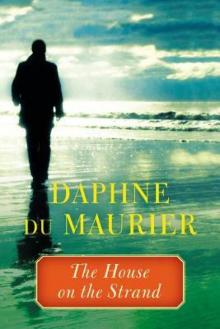 The House on the Strand
The House on the Strand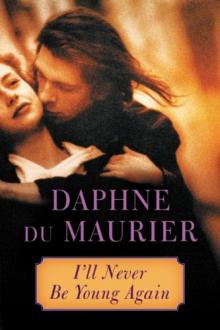 I'll Never Be Young Again
I'll Never Be Young Again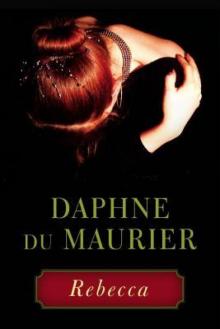 Rebecca
Rebecca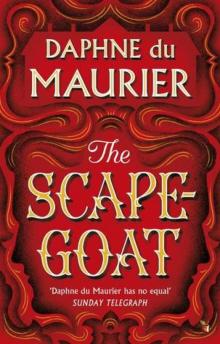 The Scapegoat
The Scapegoat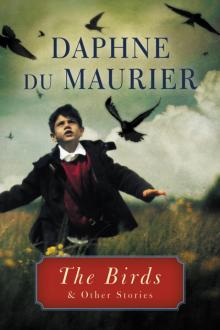 The Birds and Other Stories
The Birds and Other Stories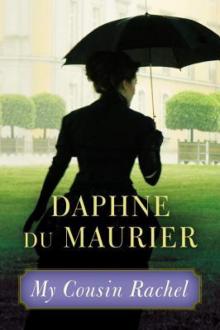 My Cousin Rachel
My Cousin Rachel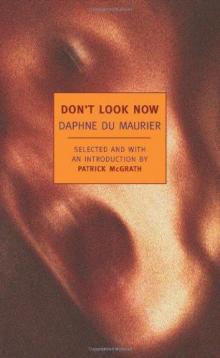 Don't Look Now
Don't Look Now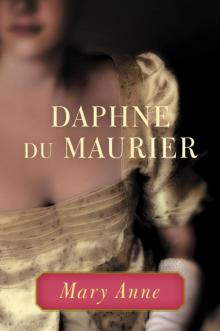 Mary Anne
Mary Anne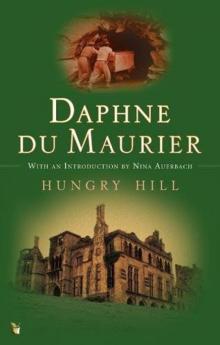 Hungry Hill
Hungry Hill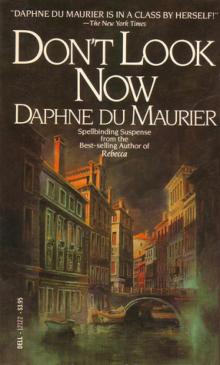 Don't Look Now and Other Stories
Don't Look Now and Other Stories The Loving Spirit
The Loving Spirit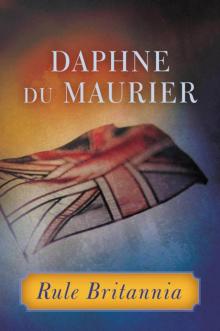 Rule Britannia
Rule Britannia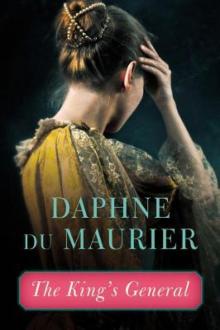 The King's General
The King's General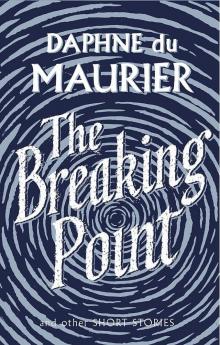 The Breaking Point: Short Stories
The Breaking Point: Short Stories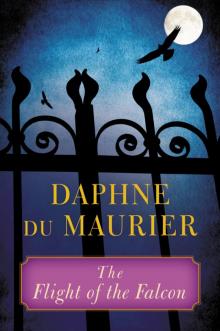 The Flight of the Falcon
The Flight of the Falcon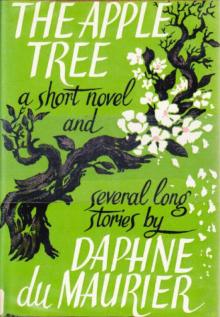 The Apple Tree: a short novel & several long stories
The Apple Tree: a short novel & several long stories The Breaking Point
The Breaking Point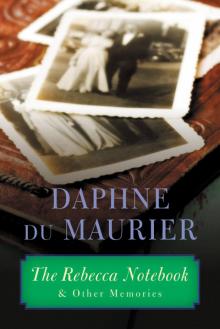 The Rebecca Notebook
The Rebecca Notebook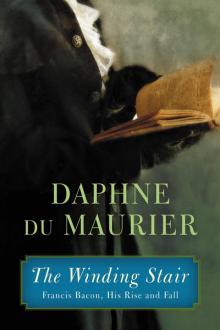 The Winding Stair: Francis Bacon, His Rise and Fall
The Winding Stair: Francis Bacon, His Rise and Fall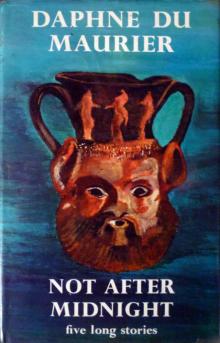 Not After Midnight & Other Stories
Not After Midnight & Other Stories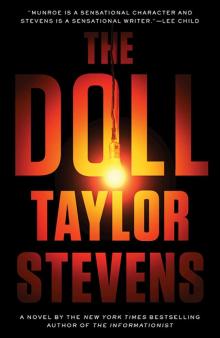 The Doll
The Doll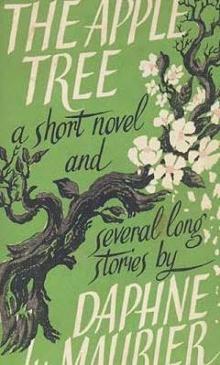 The Apple Tree
The Apple Tree